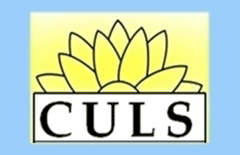Keywords
Plagiarism; Academic Dishonesty; Library Tutorials; Information Literacy
Abstract
This article describes the educational politics and processes involved in vetting the creation of an online plagiarism tutorial at a small Liberal Arts college in the Midwest. The first three phases of the ADDIE Instructional Design model was used to develop the course, but its rollout was indefinitely suspended, awaiting a faculty vote. The plagiarism course modules are described along with the pending review which has led to a redesign of the course modules in favor of implementing a reflection course module.
Creative Commons License

This work is licensed under a Creative Commons Attribution-Noncommercial-No Derivative Works 4.0 License.
Recommended Citation
Creed-Dikeogu, Gloria F.
(2018)
"The politics behind the library plagiarism tutorial: a case study,"
Kansas Library Association College and University Libraries Section Proceedings:
Vol. 8:
No.
1.
https://doi.org/10.4148/2160-942X.1071
References
Belter, R. W., & du Pre, A. (2009). A Strategy to Reduce Plagiarism in an Undergraduate Course. Teaching of Psychology, 36(4), 257-261. Retrieved from Ebscohost https://myottawa.ottawa.edu/ics/clientconfig/htmlcontent/databaseloggingproxy.aspx?url=http://search.ebscohost.com/login.aspx?direct=true&db=eric&AN=EJ870711&site=ehost-live&scope=site
Cohen, D. K., Moffit, S. L., & Goldin, S. (2007). Policy and Practice: The Dilemma. American Journal of Education, 113(4), 515-548. Retrieved from Ebscohost https://myottawa.ottawa.edu/ics/clientconfig/htmlcontent/databaseloggingproxy.aspx?url=http://search.ebscohost.com/login.aspx?direct=true&db=ehh&AN=25462431&site=ehost-live&scope=site
Dalal, N. (2016). Exploring Reflective Means to Handle Plagiarism. Journal of Information Systems Education, 27(3), 175-181. Retrieved from Ebscohost https://myottawa.ottawa.edu/ics/clientconfig/htmlcontent/databaseloggingproxy.aspx?url=http://search.ebscohost.com/login.aspx?direct=true&db=eric&AN=EJ1151240&site=ehost-live&scope=site
Chico State IDTS.(n.d.). Instructional design & Technology Society. ADDIE Model. Retrieved from http://www.csuchico.edu/idts/addie.php
Davis, A.L. (2013). Using instructional design principles to develop effective information literacy instruction: The ADDIE model. College & research Libraries News, 74(4):205-207.Retrieved from https://crln.acrl.org/index.php/crlnews/article/view/8934/9656
Davis, L. (2011). Arresting Student Plagiarism: Are We Investigators or Educators? Business Communication Quarterly, 74(2), 160-163. doi:10.1177/1080569911404053. Retrieved from Ebscohost https://myottawa.ottawa.edu/ics/clientconfig/htmlcontent/databaseloggingproxy.aspx?url=http://search.ebscohost.com/login.aspx?direct=true&db=buh&AN=65438753&site=ehost-live&scope=site
Gómez-Espinosa, M., Francisco, V., & Moreno-Ger, P. (2016). The Impact of Activity Design in Internet Plagiarism in Higher Education. Comunicar, 24(48), 39-47. doi:10.3916/C48-2016-04. Retrieved from Ebscohost https://myottawa.ottawa.edu/ics/clientconfig/htmlcontent/databaseloggingproxy.aspx?url=http://search.ebscohost.com/login.aspx?direct=true&db=ufh&AN=116680854&site=ehost-live&scope=site
Hall, S. E. (2011). Is It Happening? How to Avoid the Deleterious Effects of Plagiarism and Cheating in Your Courses. Business Communication Quarterly, 74(2), 179-182. doi:10.1177/1080569911404057. Retrieved from Ebscohost https://myottawa.ottawa.edu/ics/clientconfig/htmlcontent/databaseloggingproxy.aspx?url=http://search.ebscohost.com/login.aspx?direct=true&db=buh&AN=65438757&site=ehost-live&scope=site
Klein, D. (2011). Why learners choose plagiarism: a review of the literature. Interdisciplinary Journal of E-Learning and Learning Objects, 7, 97-111.
Koyama, J. (2015). When things come undone: the promise of dissembling education policy. Discourse: Studies In The Cultural Politics of Education, 36(4), 548-559. doi:10.1080/01596306.2015.977012. Retrieved from https://myottawa.ottawa.edu/ics/clientconfig/htmlcontent/databaseloggingproxy.aspx?url=http://search.ebscohost.com/login.aspx?direct=true&db=ehh&AN=102809619&site=ehost-live&scope=site
Leathwood, C., & Phillips, D. (2000). Developing curriculum evaluation research in higher education: Process, politics and practicalities. Higher Education (00181560), 40(3), 313-330. Retrieved from Ebscohost https://myottawa.ottawa.edu/ics/clientconfig/htmlcontent/databaseloggingproxy.aspx?url=http://search.ebscohost.com/login.aspx?direct=true&db=aph&AN=3926689&site=ehost-live&scope=site
McCabe, D & Trevino, L. (1993). Academic dishonesty: honor codes and other contextual influences. The Journal of Higher Education, 64(5).
McCabe, D & Trevino, L. (1997). Individual and contextual influences on academic dishonesty: a multi-campus investigation. Research in Higher Education, 18.
McCabe, D. & Trevino, L. (2002). Honesty and honor codes. Academe, 88, 37-41.
MacLennan, H. (2018). Student Perceptions of Plagiarism Avoidance Competencies: An Action Research Case Study. Journal of The Scholarship Of Teaching And Learning, 18(1), 58-74. Retrieved from Ebscohost https://myottawa.ottawa.edu/ics/clientconfig/htmlcontent/databaseloggingproxy.aspx?url=http://search.ebscohost.com/login.aspx?direct=true&db=eric&AN=EJ1169879&site=ehost-live&scope=site
Included in
Curriculum and Instruction Commons, Higher Education Commons, Information Literacy Commons, Instructional Media Design Commons, Online and Distance Education Commons


